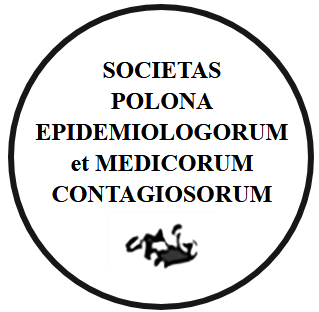ABSTRACT
INTRODUCTION. In 2020, the world was gripped by a global pandemic caused by a new strain of coronavirus called SARS-CoV-2. Highly contagious, rapidly spreading virus caused massive infections around the world and forced isolation of patients and quarantine of contact persons. Social isolation, caused by the introduction of compulsory distance or resulting from the course of the quarantine process, may result in the loss of emotional ties between individuals, thus leading to the weakening of the social support network.
OBJECTIVE. The aim of the study was to assess whether and to what extent the restrictions caused by the first wave of SARS-CoV-2 virus pandemics affected emotional state and everyday behavior of students of Polish universities.
MATERIAL AND METHODOLOGY. 1,095 students took part in the study – 82.1% of women and 17.9% men, aged 19 and over up to 55 years of age, living mostly in cities. The diagnostic survey method was applied using proprietary questionnaires. The questionnaire was distributed by Internet. The results were processed using the Statistica v.13.3 program with the application of descriptive statistics and tests χ2 and Anova.
RESULTS. According to 80% of respondents, the SARS-CoV-2 pandemic is a serious threat for health. During the first wave of the pandemic, students were accompanied mainly by difficult emotions: uncertainty (61%), depression (28.9%), worry (28.7%), nervousness (37.7%) and anger (24%). According to 50.2%, their relations with household members were not changed, while students declaring changes in family relationships pointed to their loosening and limitation.
CONCLUSIONS. A significant majority of students stated that the COVID-19 pandemic is a serious threat to health and has a regular interest in epidemiological data concerning coronavirus. Medical students declared the highest risk. The first wave of the pandemic resulted in the intensification of difficult emotions and for half of the respondents changes in the functioning of their family relationships.
STRESZCZENIE
WSTĘP. W 2020 roku świat opanowała globalna pandemia wywołana przez nowy szczep koronawirusa o nazwie SARS-CoV-2. Wysoce zaraźliwy, szybko rozprzestrzeniający się wirus spowodował masowe zakażenia na całym świecie i wymusił izolację chorych oraz kwarantannę osób z kontaktu. Izolacja społeczna spowodowana wprowadzeniem obowiązku zachowania dystansu bądź wynikająca z kwarantanny, może skutkować utratą więzi emocjonalnej pomiędzy poszczególnymi osobami, doprowadzając w ten sposób do osłabienia sieci wsparcia społecznego.
CEL. Celem badania była ocena czy i w jakim stopniu obostrzenia wywołane pierwszą falą pandemi wirusa SARS-CoV-2 wpłynęły na stan emocjonalny i codzienne zachowania studentów polskich uczelni.
MATERIAŁ I METODY. W badaniu udział wzięło 1 095 studentów – 82,1% kobiet i 17,9% mężczyzn, w wieku od 19 do 55 lat, w większości zamieszkujących miasta. Wykorzystano metodę sondażu diagnostycznego przy użyciu autorskiej ankiety. Kwestionariusz był dystrybułowany drogą internetową. Wyniki opracowano przy użyciu programu Statistica v.13.3 z zastosowaniem statystyk opisowych i testów χ2 oraz Anova.
WYNIKI. Według 80% badanych pandemia SARS-CoV-2 jest poważnym zagrożeniem dla zdrowia. W czasie trwania pierwszej fali pandemii studentom towarzyszyły głównie trudne emocje: niepewność (61%), przygnębienie (28,9%), zamartwianie się (28,7%), podenerwowanie (37,7%) oraz złość (24%). Zdaniem 50,2% ich relacje z domownikami nie uległy zmianie, natomiast studenci deklarujący zmiany w relacjach rodzinnych, wskazywali na ich rozluźnienie i ograniczenie.
WNIOSKI. Znacząca większość studentów stwierdziła, iż pandemia COVID-19 stanowi poważne zagrożenie dla zdrowia oraz regularnie interesowała się danymi epidemiologicznymi dotyczącymi koronawirusa. Największe zagrożenie deklarowali studenci medycyny. Pierwsza fala pandemii skutkowała nasileniem trudnych emocji i dla połowy badanych zmianami w funkcjonowaniu ich relacji rodzinnych.
You can change cookies settings in your browser. Restricted use of cookies in the browser configuration may affect some functionalities of the website.





